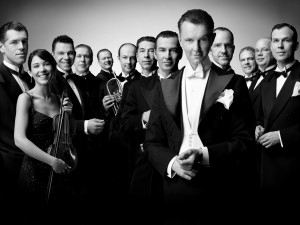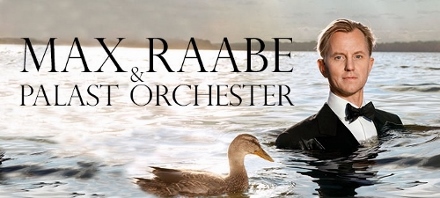HEAVEN, YOU’LL BE IN HEAVEN
The public’s fondness for songs has an extensive and nearly unbroken history, and one of the acmes of this history took place in America from the 1910s into the 1950s. During this time, songsmiths created ditties that were so well constructed in melody, so sympathetic and amenable in word construction, that they stand as unique triumphs in our nation’s creative story. The nineteenth-century music of Civil War parlor songs, minstrel shows, and Stephen Foster folk tunes paved the way for more personal lyrics. Ragtime and John Philip Sousa’s instrumental extravaganzas pushed rhythm to the fore of musical structure. By the years of the late teens and early 20s, the presence of a new kind of articulation in lyrics, and a new role for rhythm in the texture of song composition, found its way into the works of writers such as Irving Berlin and Duke Ellington.
In the mid-1920s, Americans were going through a revolutionary decade in technological communications: Radio, broadcast microphones, enhanced recording techniques, and sound on film (to name a few) thrust American Popular Song into the clutches of an insatiable public. It was around this time that singers (The Rhythm Boys’ Al Rinker and Bing Crosby, Al Jolson, etc.) became as important as the songs. At the same time, composers like Cole Porter and Gershwin were enjoying successes on Broadway, and well into the late ‘50s and early ‘60s, musical theater would spawn a majority of popular music.
One could scrutinize the reasons that an apotheosis of songwriting appeared early in the century, but there was something magical floating through the air that surrounded the world of popular music, not just in America but in Europe as well. Baby Boomers have enjoyed a glimpse of this era via electronica, but rare is the  opportunity to soak up classics from the Great American Songbook live, delivered by someone who retains the wit, debonair charm, refinement, humor, and sophistication of those long gone singers and songwriters.
opportunity to soak up classics from the Great American Songbook live, delivered by someone who retains the wit, debonair charm, refinement, humor, and sophistication of those long gone singers and songwriters.
For die-hard fans of this genre–and for those new to these timeless tunes–a visit to see the charismatic baritone Max Raabe at the Symphony Center on April 8, 2015 is mandatory. Max Raabe & Palast Orchester, as the world-famous group is known, embodies the high style and musical glory of the ‘20s and ‘30s, and they will be performing songs from and in the style of that remarkable time, many in their original arrangements.
Always elegant and smart in appearance, Berlin’s famed crooner and his 12-piece orchestra will be unveiling their new program, A Night in Berlin, a collection of meticulously recreated songs from the Weimar era of 1920s’ Germany; there will also be selections from the Great American Songbook. The group draws from the time between the two world wars with idiosyncratic performances of timeless classics like “Singing in the Rain,†“Dream a Little Dream,†and “Cheek to Cheek‖along with witty interpretations of pop favorites “Sex Bomb†and “Oops…I Did It Again.†The ever-stylish troupe always wields a lighthearted panache and effortless appeal that delights music lovers of all stripes. The last time I saw the gang perform, the audience continued applauding long after the house lights came up.
A singer of incredible range, Raabe has the ability to capture the cunning rasp of the cabaret singer, the confidence of the bel canto hero, the oily melodiousness of the revue beau, the carefree timbre of early jazz, as well as the falsetto of ragtime, all backed by his amazing band, many of whom have been with him since the orchestra’s formation in the mid-80s. It’s an uncanny experience seeing Raabe perform, and I promise you’ll be floating out of the theater.
Max Raabe & Palast Orchester – A Night in Berlin
presented by Chicago Symphony Orchestra
Symphony Center, 220 S. Michigan Ave.
Wednesday, April 8, 2015 at 8:00
for tickets, call 312-294-3000 or visit www.cso.org


{ 1 comment… read it below or add one }
Thank you for this well-written and informative preview of the concert. I was there on April 8; I was expecting the concert to contain some of the same songs as are on their recent DVD, also called A Night in Berlin, but many of the numbers I hadn’t heard them perform before. The Palast repertoire is so special–many of the songs are by Jewish composers who were “fired” by Hitler, so to speak. Many of them perished in the camps but some made it to America and wrote for the Marx Brothers films and for Walt Disney. Max Raabe always names Jewish composers as he introduces their songs. Some of the songs Max says in interviews the orchestra has found great arrangements for in our own Chicago Public Library. People who love music from the 20s and 30s need to see Max and his Palast Orchester perform in concert. They do not disappoint! My guess is that they’ll return to Chicago in 2017, but hopefully before then.